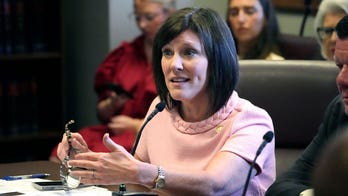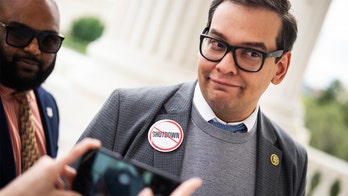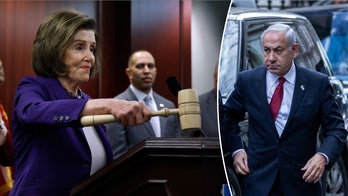The Ukraine crisis is not settling down, no matter how much the Obama administration might like it to.
Fugitive Ukrainian president Viktor Yanukovych spoke Friday, from a safe haven in Russia for the first time since fleeing the capital, vowing to "keep fighting" for his country's future. While he said he won't ask for military assistance, planned Russian military exercises on the border have western nations nervous -- and there were conflicting reports Friday about allegedly Russia-backed troops blocking two main airports in the peninsula of Crimea.
So what is the Obama administration, and Congress, doing?
Critics, who see the conflict as a disturbing sign of Vladimir Putin flexing his muscle, say not enough.
"I would like to see some recognition of the stakes here," conservative analyst Charles Krauthammer said on Fox News, calling President Obama "mute" on the matter. He said if Putin applies military pressure, "then at least the West has to stand up and say we're going to put a flotilla in the Black Sea."
Military action, or even movement, may be out of the question, at least for now. But here's what the U.S. government is doing.
1. Economic Aid
The State Department clarified Thursday that "no decision has been made," but Secretary of State John Kerry says Washington is weighing a $1 billion package of loan guarantees for Kiev. Ukraine's government says it needs $35 billion total over the next two years, and the International Monetary Fund -- with U.S. backing -- is considering their request. Christine Lagarde, IMF managing director, announced the fund is sending a "fact-finding team" to the Ukraine capital to begin that discussion.
2. Recognizing Post-Yanukovych Government
In a symbolic but important step, Vice President Biden on Thursday called Ukraine's new prime minister, Arsenij Yatsenyuk, to voice support for the new government. Yatsenyuk was named to the post on Thursday. With that phone call, and additional statements from the White House, Washington effectively recognized the new government. White House Press Secretary Jay Carney said Thursday that Yanukovych "abdicated his responsibilities when he packed up and left the capital of his country." Those actions, he said, "undermine his legitimacy." He backed Ukraine's lawmakers in forming a new government, with elections expected on May 25.
3. Congressional Delegation
The Hill reports that House Foreign Affairs Committee Chairman Ed Royce, R-Calif., is putting together a congressional delegation. According to the Hill, he says lawmakers will assure the new government of U.S. support while urging Kiev not to sideline Ukraine's Russian citizens.
4. Words of Warning (though just words)
Secretary of State John Kerry had tough talk for Russia on Wednesday when he said it would be a "grave mistake" for Moscow to intervene militarily in Ukraine. Amid the planned large-scale military exercises, Kerry said any intervention would violate the country's "territorial integrity." But Kerry also did not threaten any particular retaliation, and on Thursday said Russia assured the U.S. it will respect that sovereignty.
"Everybody needs to step back and avoid provocations," Kerry said.
5. Dealing with Putin
It's anybody's guess how successful this will be, but Obama administration officials have been dealing with their Russian counterparts at the highest levels in the interest of easing tensions in Ukraine and especially Crimea. Obama had a lengthy phone call with Vladimir Putin last week (before Ukraine's then-president fled the capital) about the crisis. According to the White House, they talked about "stabilizing the economic situation and undertaking necessary reforms," and dialing back the violence.
It appears the administration is still trying hard to avoid a confrontation. Reuters reports that the State Department is working the diplomatic channels with Russia. One department official told the news service that while "tough rhetoric" might please the domestic audience, "this is not an era where tough talk gets the job done." Kerry again called his Russian counterpart on Friday, urging Moscow not to inflame tensions.




